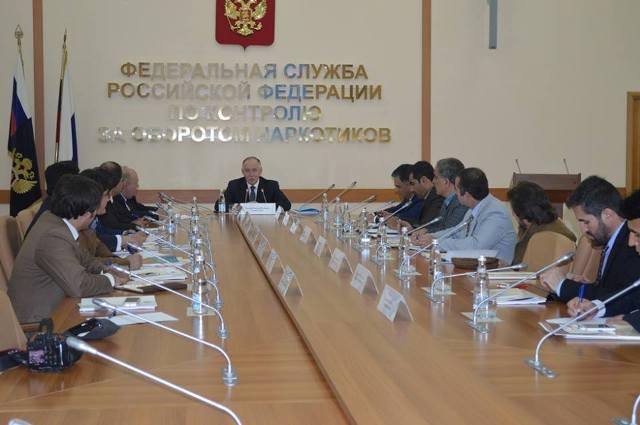MOSCOW (Pajhwok): Russia’s Federal Service for the Control of Narcotics has voiced serious concern over the growth of drugs in Afghanistan and the international community have failed to deal with the challenge.
At a meeting with Afghan editors in Moscow late on Friday, the Russian counternarcotics chief, Victor Ivanov, said that illicit drugs posed a serious obstacle to enhanced Afghan-Russian cooperation.
Unhappy with Kabul’s refusal to share information about poppy-growing areas and locations of drug laboratories, Ivanov said: “The Afghan government doesn’t provide the list of drug traffickers either.”
He hit out at the international community’s non-serious approach to combating narcotics, claiming the world at large did not have a clear plan for eliminating the scourge because no stringent law had been put in place so far.
Afghanistan could not deal with the challenge without global support and the UN should evolve a clear plan to control the situation, Ivanov suggested, asking Kabul to make a viable programme to seek foreign aid in this regard.
About international plans for fighting drugs, he said the global strategy was marred by terrible flaws. He likened anti-drug policy to a medicine more dangerous than the disease it was supposed to cure.
“As the number of foreign troops increased in Afghanistan, so did poppy growth,” he alleged, explaining the war-torn country’s opium production was about 2,000 tonnes in 2001 and 2002 when the number of foreign troop was 7,500.
But the yield in 2007 increased to 8,000 tonnes when the number of foreign troops rose to 30,000, the official continued.
Of the situation in Iran and Libya, Ivanov said the two countries were weak and drug-traffickers chose that route between Europe and Africa after they came under attack elsewhere.
He said Russia would take strong measures to control drug consumption, treating rehabilitate addicts, increase support to Afghanistan by training Afghan police and boost regional cooperation in line with its strategy.
The campaign against drugs cannot succeed only with distribution of improved seeds to farmers, Ivanov believed, stressing the execution of infrastructural projects and provision of job opportunities for the Afghans.
He supported the CASA-1000 project transferring electricity from Central Asia to South Asia through Afghanistan and Pakistan and the TAPI gas pipeline, as well as the Iran-Pakistan-India gas pipeline. He said the projects could help improve the economy of regional countries.
mds/mud








GET IN TOUCH
NEWSLETTER
SUGGEST A STORY
PAJHWOK MOBILE APP